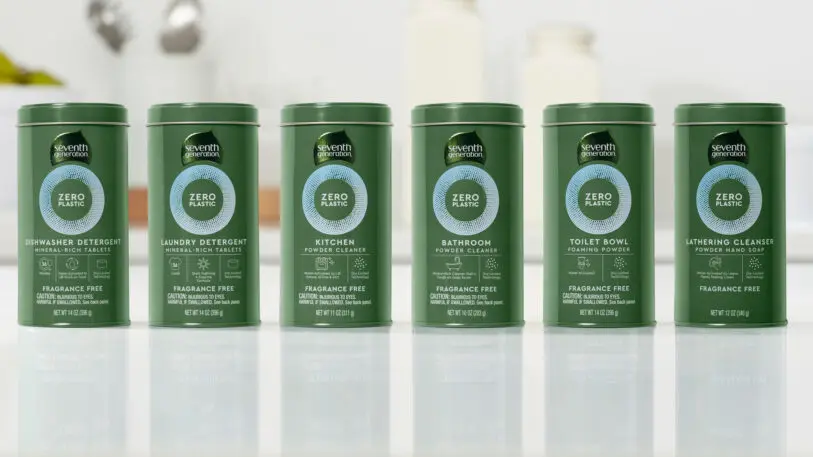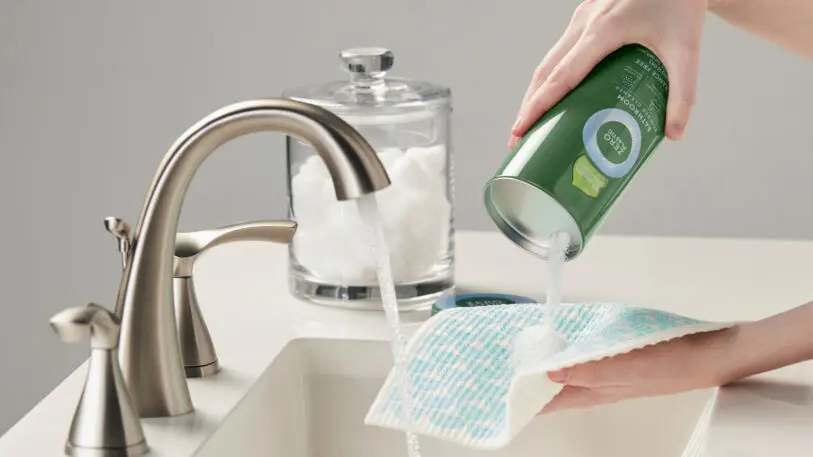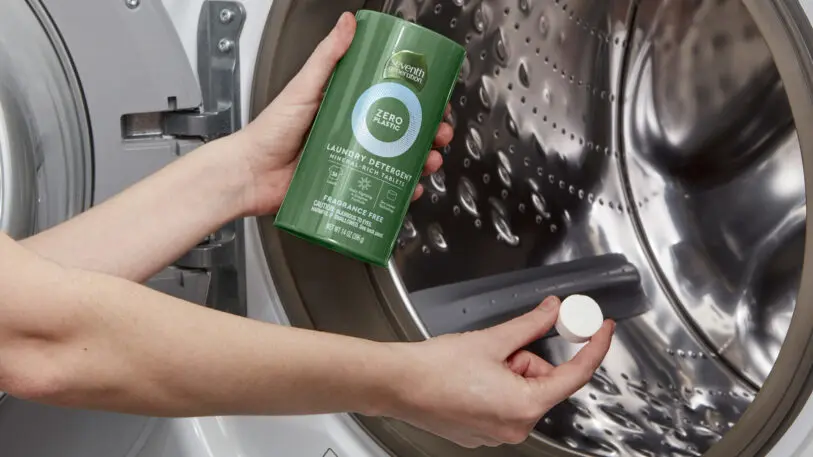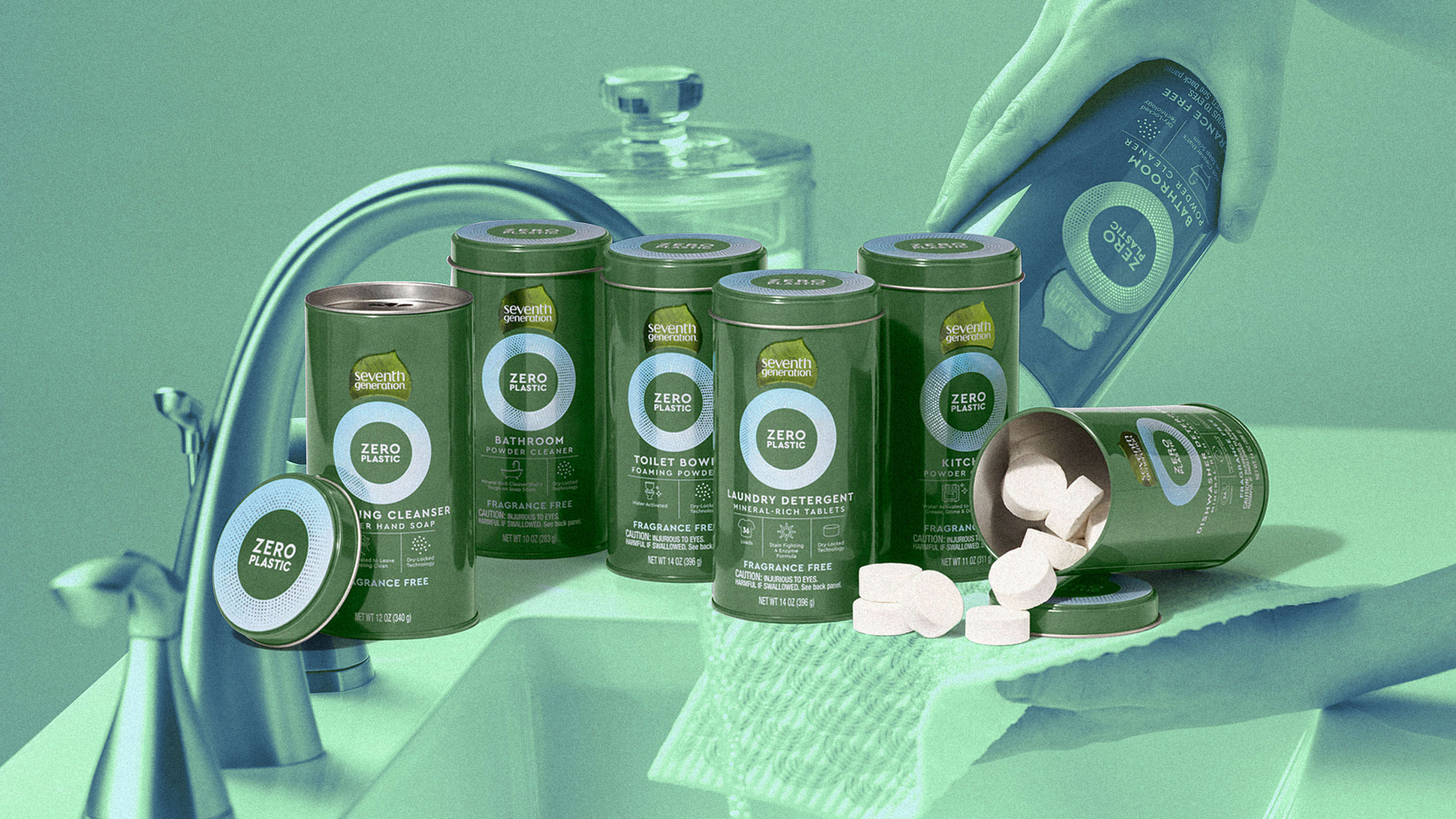Seventh Generation, the cleaning product company known for its natural products, has spent years tweaking its packaging to improve sustainability, including a massive push to use more post-consumer recycled plastic. But the company is now using a different tactic, and beginning to move away from plastic completely, starting with a new line called Zero Plastic Homecare.
“What we realized is that we really need to take action and move ourselves as a business away from plastic, because as good as the plastic is or as little you use, recycling alone will never solve the problem,” says Seventh Generation CEO Joey Bergstein. In the U.S., according to an EPA report last year with the most recent data, only around 9.1% of plastic waste is recycled; another 15.5% is burned. The rest—26 million tons per year—ends up in landfills. That’s despite years of effort to improve recycling rates.



The company is launching the line first through Grove Collaborative, an online retailer also focused on sustainability (Grove also happens to be the first plastic-neutral retailer, meaning that for every ounce of plastic it sells, it will divert a corresponding amount of plastic from the ocean.) For Seventh Generation, it’s a chance to test the new products to see how consumers respond. “It will be different to be cleaning a toilet bowl without a liquid, and it will be different cleaning a countertop by using a sifter to put powder on the countertop as opposed to using a spray bottle,” he says. “That’s what we’re excited for consumers to engage with, and for us to have that avenue to be able to listen and learn from them.”
Over time, as new packaging options become available like water-resistant, plastic-free paper bottles, the company will continue to evaluate new materials. Steel has some advantages, like a lower carbon footprint in mining than aluminum, but does still have an environmental impact. “We’re planning to continually iterate between now and 2025 to make sure that this is as sustainable a product as possible,” says Bergstein.
Recognize your brand’s excellence by applying to this year’s Brands That Matter Awards before the final deadline, June 7.
Sign up for Brands That Matter notifications here.
